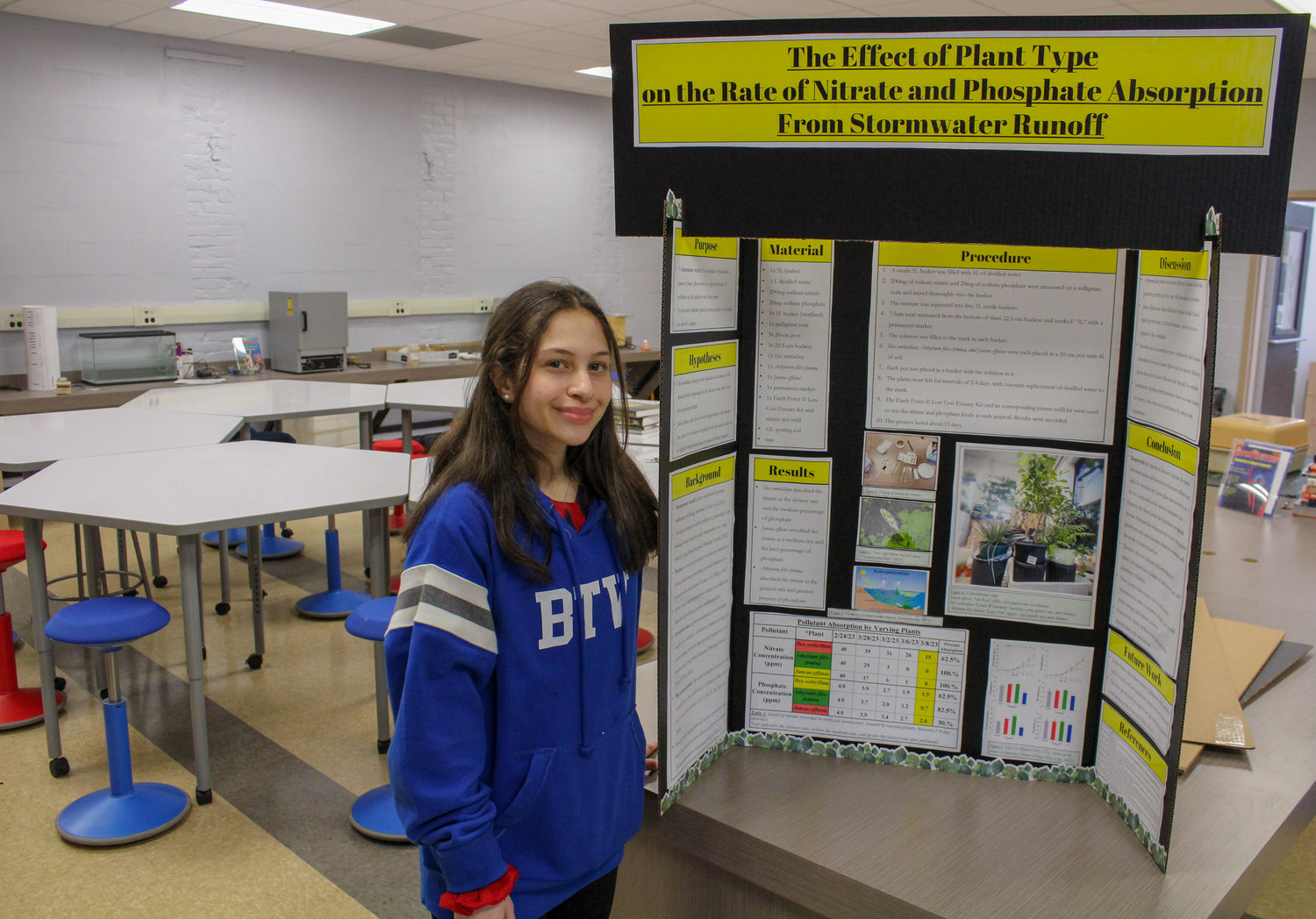South Side students wins water quality grant
Marina Ioannou, a 10th-grade science research student at South Side High School in Rockville Centre, was selected by the Long Island Regional Planning Council to receive a $2,500 grant for her proposal to construct a rain garden at the school.
The 2023 Long Island Water Quality Challenge is an annual STEM-based competition where middle school and high school students are given the opportunity to present ideas that will help reduce runoff and nitrogen pollution as part of a multi-year effort to reduce the amount of nitrogen entering Long Island ground and surface waters.
Ioannou’s proposal for the construction of a rain garden was based on the results of a similar experiment she conducted, which tested the effects of different plants on the rate of nitrate and phosphate absorption from stormwater runoff. Based on the results she was able to determine the extent to which each plant was able to absorb pollutants from seeping into the groundwater below. The results were then posted on a tri-fold board, detailing the process of her study and the plants which she plans to use and study in the rain garden.
“We are very proud of Marina and look forward to her continued work in science research,” South Side High School Principal Patrick Walsh said. “We are also thankful to Mr. Russo, Marina’s instructor, for his help with this project.”
The contest, which is overseen by the LIRPC in collaboration with the state Department of Environmental Conservation and both Nassau and Suffolk counties, was created to help educate students on the harmful effects of excess nitrogen in Long Island’s surface and drinking waters, by empowering them to develop local solutions to solving the problem.
Nitrogen is the leading cause of water quality deterioration for Long Island’s estuaries. It threatens the health of the ecosystem and the region’s economic well-being. Excess nitrogen can cause toxic algal blooms that lead to low oxygen conditions, kills fishes, and degrades wetlands and marine habitats. Nitrogen also contaminates the groundwater, which is the sole source of drinking water on Long Island. In both Nassau and Suffolk counties, excess nitrogen from aging residential septic systems, fertilizer use, stormwater runoff, and other sources has deteriorated the quality of surface and groundwater over the last several decades.
“Nitrogen runoff into our surface waters and groundwater presents one of the most serious threats to the natural environment of Long Island,” John Cameron, chairman of the Long Island Regional Planning Council, said. “The Long Island Water Quality Challenge seeks not only to educate our students about nitrogen pollution but empower them to design creative ways to reduce the reliance on fertilizers and pesticides and to treat stormwater runoff prior to leaving campus grounds.”
The Long Island Water Quality Challenge began in 2019 for students in all school districts across Nassau and Suffolk counties. Each year, students are invited to develop and design projects to be constructed on their school grounds, with the goal of either reducing the use of fertilizers, pesticides, and water consumption or devising methods to collect and treat stormwater runoff on school property.
This year, four schools were selected to receive grants by a panel of water quality experts, who served as evaluators of the projects.
In addition to the installation of rain gardens, Ioannou’s project calls for the inclusion of permeable pavement to help reduce possible stormwater runoff and filter out pollutants.

 63.0°,
A Few Clouds and Breezy
63.0°,
A Few Clouds and Breezy 




